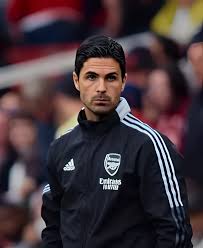Mikel Arteta: The Architect of Arsenal’s Revival

Introduction
Mikel Arteta, the head coach of Arsenal Football Club, has become a pivotal figure in the club’s resurgence within the Premier League. His strategic mindset and focus on youth development have not only revitalised the team’s performance but also enhanced the club’s culture. Understanding Arteta’s philosophies and methods are crucial for fans and analysts alike as they reflect on the changing dynamics in English football.
Arteta’s Journey to Arsenal
Before taking the reins at Arsenal in December 2019, Mikel Arteta enjoyed a successful career as a player and assistant coach. Having spent five years at Arsenal as a player from 2011 to 2016, he joined Manchester City as an assistant coach under Pep Guardiola, where he honed his tactical skills and leadership qualities. His return to Arsenal was met with optimism, and his appointment marked the beginning of a new era.
Key Achievements
Arteta’s tenure has already been defined by remarkable achievements, most notably winning the FA Cup in 2020, defeating Chelsea in the final. This victory not only secured silverware for the club but also instilled a sense of belief amongst players and supporters. Under his guidance, Arsenal has shown significant improvement in league standings, reflecting a more aggressive and cohesive playing style.
Tactical Innovations
Arteta is recognised for his tactical flexibility, often deploying variations of a 4-3-3 formation that allows for both defensive stability and attacking fluidity. His emphasis on ball possession, quick transitions, and pressing has redefined how Arsenal approaches each match. Additionally, Arteta prioritises nurturing young talent, integrating players like Bukayo Saka and Emile Smith Rowe into the first team, ensuring a bright future for the club.
Challenges Ahead
Despite his successes, Arteta faces ongoing challenges. The competitive nature of the Premier League means that sustaining such performances is paramount. Additionally, the club’s ambitions to compete for the title and secure Champions League football present a significant test of his managerial skills. As he builds a squad capable of success, Arteta’s strategies will continue to be scrutinised closely.
Conclusion
Mikel Arteta’s influence on Arsenal Football Club cannot be overstated. He has already rejuvenated the team’s spirit and competitiveness, bringing hope to the fanbase. Looking ahead, if he can navigate the challenges that lie ahead, there’s a strong possibility that he will lead Arsenal back to its former glory, earning a spot among the elite in English football once more. As the ‘Gunners’ continue their campaign, the footballing world will keenly watch how Arteta’s vision materialises on the pitch.
